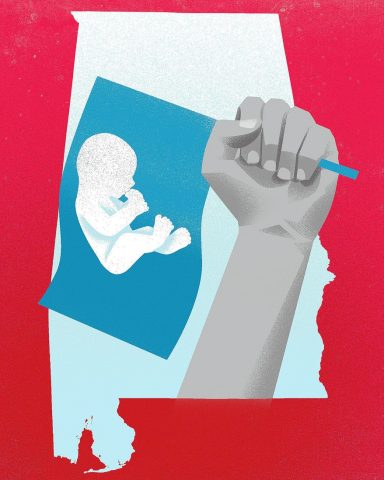Former Vatican Head of Doctrine of the Faith: Christians ‘Cannot Pray Like or With Muslims’, by Martin M. Barillas
May 22, 2019Louisiana Senate Passes Constitutional Amendment Confirming There’s No Right to Abortion, by Steven Ertelt
May 22, 2019
By Charlotte Pence, The Washington Times, Tuesday, May 21, 2019
ANALYSIS/OPINION:
Last Tuesday night, the Alabama state legislature passed the Alabama Human Life Protection Act. The bill was signed into law by Alabama Gov. Kay Ivey on Thursday, and will make abortion and attempted abortion felony offenses in Alabama, providing exception to cases where abortion would “prevent a serious health risk to the unborn child’s mother.” It makes clear that a woman cannot be punished for receiving an abortion, but does not allow for the procedure in the case of rape or incest.
The bill received pushback from many politicians on the right and left. Sens. Kirsten Gillibrand and Elizabeth Warren made the argument it is anti-woman and even Mayor Pete Buttigieg “likewise sent a fundraising email on Wednesday, declaring that “reproductive freedom is an American freedom,” according to The Hill.
No one can enjoy any of the freedoms in America if they are not first given the right to life. While the law is hotly debated, its very existence — and the language included in it — may lead to a shift in our culture, one that will serve to produce long-term effects rather than fleeting reactions.
This law is written with the unborn woman in mind. It ensures that she will one day be able to have freedoms of her own, that a person can have a chance to live the life he or she wants in this great country. The specific language moves the conversation about abortion back to the most affected life in this difficult scenario: that of the child.
It defines an “unborn child, child, or person” as “a human being,” first, then “specifically including an unborn child in utero at any stage of development,” and ending with “regardless of viability.”
In order to make any real impact on the trend of abortions in this country, we need to recognize we can’t just make advances through policy. Real change starts with our conversations, mindsets and rhetoric. The law’s language is a step in that direction: To define an unborn child as a human being, a person.
In today’s America, that alone is a radical statement.
Our country is still divided on the issue of abortion, which means the blanket application of a law by the courts didn’t end the argument. It exacerbated the division because people weren’t given a chance to have their voices heard on the issue through the election of representatives. Since 1973, we have watched a loud pro-choice movement take root in our politics and pop culture. Their arguments belittle the opinions of dissenting Americans to believe and vote on this personal and polarizing issue.
I want to see America choose life, to decry the killing of the unborn, but this starts with a shift in our attitudes. It won’t happen without a country where we can all have differing opinions, vote on them and let democracy take its course.
Susan B. Anthony’s effort to secure women’s right to vote is one that can be applied to the current abortion debate. She believed women were being wrongly forced into societal roles without the ability to have a say in the life they wanted. One of the reasons for her cause was that men were domineering over their wives. Today, one of the dominating forces over women is found in the celebration of abortion. We are encouraged to believe there is one option when faced with an unexpected pregnancy.
Personally, I would not encourage a friend to get an abortion if she suffered the horrendous evil of rape or incest because I care about her child — and her. I do not believe abortion provides healing. This is where we have to start — in the one-on-one interactions with love instead of demonizing each other in the public sphere.
We must have a desire to change hearts through kindness rather than only minds through debates.
In an interview in 1895, Susan B. Anthony addressed the changing role of women in society.
“If by the ‘new woman’ is meant a woman earnest, thoughtful, lofty of purpose, self-reliant and equally educated with man, why, then, she has come”
The “new woman” is here; we have the vote and the ability to stand up for ourselves and for the women — and men — in the womb who cannot.
In this, we can establish our cause by championing women, finding that “lofty purpose” and uplifting people in difficult situations.
In our own lives, let us pay heed to the wording in the Alabama law and recognize that to refer to an unborn child as anything less than a “human being” or a “person” is to advance a culture that takes away an individual’s freedom before he or she has a chance to speak.
• Charlotte Pence, daughter of Vice President Mike Pence, is a student at Harvard Divinity School. She is the author of “Where You Go: Life Lessons from My Father” (Center Street, 2018).
Copyright © 2019 The Washington Times, LLC.







